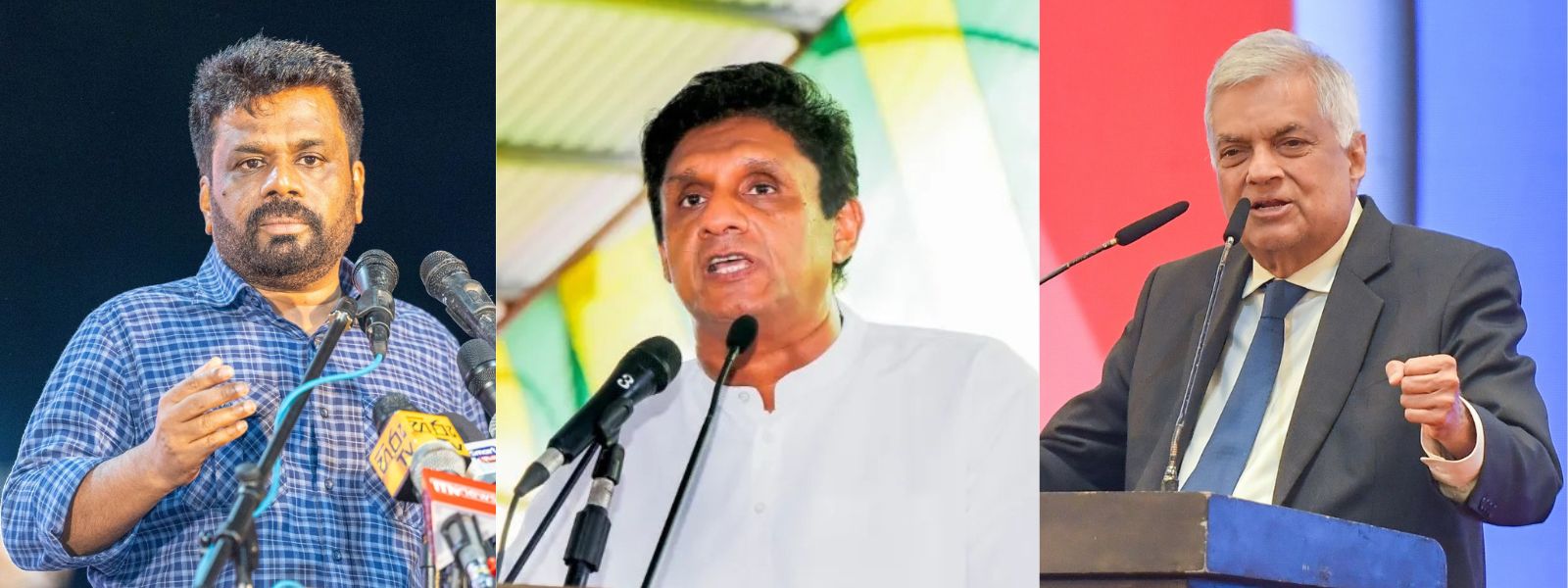.webp)

Abolish or Reform? Future of The Executive Presidency
COLOMBO (News 1st); As the presidential election approaches, three major candidates have presented different positions with regard to the Executive Presidency.
What Is The Executive Presidency?
The executive presidency in Sri Lanka is a powerful and influential position within the country’s political system.
Significant changes came with the 1978 Constitution, introduced by President J.R. Jayewardene, which transformed the office of the president into an executive presidency.
This change granted the president extensive executive powers, making the role both the head of state and head of government.
Critics argue that the executive presidency centralizes too much power in one individual, undermining democratic checks and balances.
Over the past few decades, there have been ongoing debates about abolishing the executive presidency to reduce the concentration of power and enhance democratic governance.
As the first election Sri Lanka would see since it's worst economic crisis in 2022, candidates have started using the card of the Executive Presidency as a means to muster support in their bid to the highest office.
Anura Kumara Dissanayake, leader of the National People’s Power (NPP), launched the party's manifesto titled “Rich Country and a Beautiful Life.”
During the ceremony, Dissanayake pledged to abolish the executive presidency, enact a new constitution, and implement stringent measures to combat corruption and uphold the rule of law. He emphasized that Sri Lanka has collapsed across various sectors and that the NPP's manifesto offers a robust and systematic program aimed at revitalizing the nation.
Sajith Premadasa, the presidential candidate of Samagi Jana Balavegaya, assured the public that, if elected, he would not misuse the powers of the executive presidency.
He stressed on using executive powers responsibly and transparently, viewing the role as a duty and responsibility bestowed by the people.
Ranil Wickremesinghe, an independent presidential candidate and also the sitting President, stated that his primary focus would be on stabilizing the economy rather than abolishing the executive presidency.
He argued that the decision to abolish the executive presidency should be left to the next Parliament, emphasizing that the country has spent decades debating this issue at the expense of addressing critical economic problems.
Wickremesinghe called for a shift in focus from political debates to economic solutions, warning of serious consequences if economic issues are not prioritized.
The executive presidency in Sri Lanka remains a pivotal and often contentious element of the country’s political landscape. Its future continues to be a significant topic of debate among political leaders and the public, as Sri Lankans gear up to go to the polls on the 21st of September.
Other Articles
Featured News





.png )
-823869_550x300.jpg)
-823863_550x300.jpg)
-823857_550x300.jpg)
-823850_550x300.jpg)








-822734_550x300.jpg)
-822716_550x300.jpg)
-822495_550x300.jpg)
-819380_550x300.jpg)









.webp)






